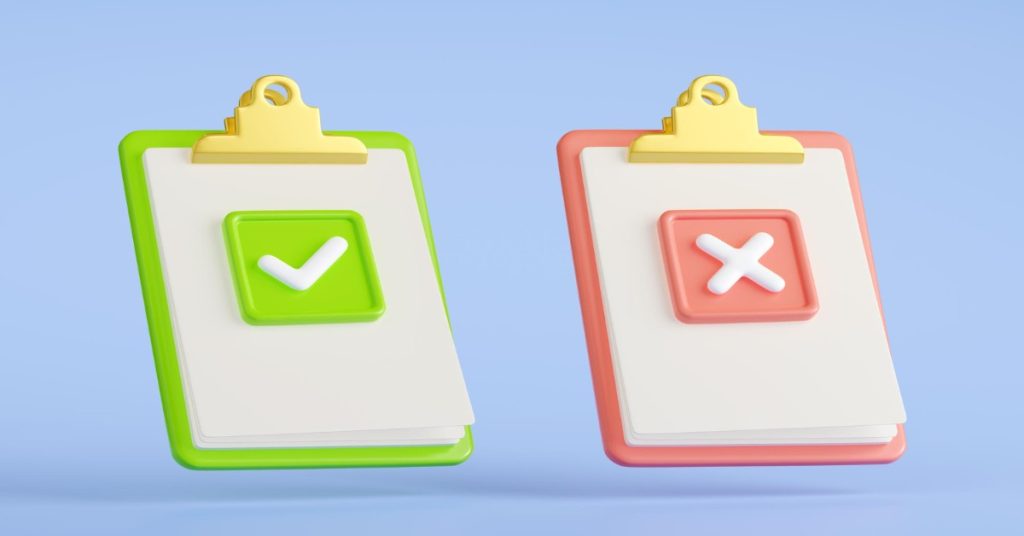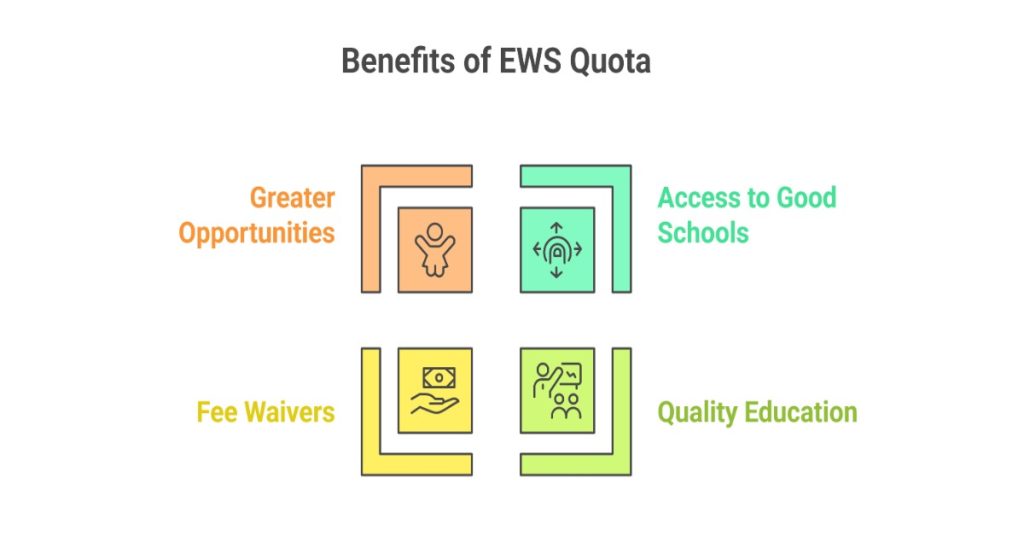
If you’re a parent hoping to secure quality education for your child but feel uncertain about the admission process for the Economically Weaker Sections (EWS) under the Right to Education (RTE) Act this blog is for you! This blog will walk you through the EWS quota, explain the key steps, provide tips for a smooth application process, and address real pain points experienced by parents.
What Is the RTE EWS Category?
The RTE Act mandates that every child between 6-14 years should have access to free and compulsory education. Section 12(1)(c) of the Act requires all private unaided schools to reserve 25% of their seats at the entry level for children from the EWS and Disadvantaged Groups. The goal is to provide opportunities for children from families with limited means, ensuring that no child is denied an education due to their financial background.
Who Qualifies Under the EWS Category?
EWS stands for Economically Weaker Section. To qualify:
- The family’s annual income should not exceed ₹8,00,000 (may differ by state; in some states, it is between ₹1,00,000–₹2,50,000).
- The child applying should not belong to any reserved category (SC/ST/OBC).
- The parent/guardian should hold a valid EWS certificate issued by local authorities.
- Proof of residence is required, indicating that the family lives in the same state where they wish to apply for admission.
What Documents Do You Need?
Collecting documentation is often the biggest hurdle for parents. Here’s a checklist that can help:
- Income certificate from a competent authority (Tehsildar/SDM/Revenue Department).
- EWS category certificate.
- Proof of address: Aadhaar card, voter ID, ration card, or utility bills.
- Proof of identity: Aadhaar card or PAN card.
- Birth certificate of the child.
- Recent passport-size photographs.
- Self-declaration form stating eligibility (if needed by your state).
- Caste certificate (proving general category if applicable).
- Land/property holding documents to show compliance with state asset thresholds (where required).
Keeping these originals and copies ready can save you from last-minute stress during the application.

How Does the Admission Process Work?
1. Application Window
Admission typically opens early in the year, often from January to February. For 2025 in Delhi, online applications started on February 3 and closed on February 19.
2. Online Registration
- Visit your state’s education department website.
- Fill in the online form with accurate details about the child and family.
- Upload or submit scanned copies of all required documents.
3. School Selection
- While applying, select schools within your preferred locality/neighborhood from the available list.
- The process is designed to be transparent. Parents are not charged any application fee.
4. Lottery System
- Seats are not allocated on a first-come, first-served basis but through a computer-generated lottery to give all eligible children a fair chance.
- After the lottery, results are communicated via SMS or published on the official website.
- If your child’s name appears, you must complete admission formalities at the allotted school.
5. Verification and Admission
- Visit the school with all original documents for verification.
- If everything is in order, your child’s admission is confirmed.
Tip: If errors occurred during your application, corrections can be made and forms resubmitted before the closing date.
Key Deadlines for 2025 (Delhi Example)
| Event | Date |
| Application Opening | February 3, 2025 |
| Application Deadline | February 19, 2025 |
| First Lottery Draw | March 5, 2025 |
| Start of Academic Session | April 1, 2025 |
Always check your own state’s official portal, as dates may differ!
What If Your Application Is Rejected or School Admission Is Denied?
It’s heartbreaking when your application is not successful. Here’s what you can do:
- Multiple Attempts: If your child doesn’t get selected, you may reapply next cycle (unless the child ages out of eligibility).
- Grievance Cell: Contact your education department’s helpline or grievance portal for redressal (e.g., Delhi’s DoE helpline at 8800355192 & 8800355146).
- Legal Recourse: If a school refuses admission after selection, courts have consistently upheld your right under the RTE Act.

Your Real Pain Points & Solutions
1. Fears Over Documentation
Many parents worry about missing or invalid certificates. Gather all required documents early and seek help from government facilitation centers if you’re unsure.
2. Online Process Confusion
Online portals can be confusing, especially for those less familiar with the internet. Download video guides or visit common service centers for free help in filling out forms.
3. Short Application Windows
You might miss deadlines due to late notification. Regularly check your state education portal and local newspapers for official announcements well before January each year.
4. Admission Denial or Delays
Some schools try to discourage or subtly delay EWS admissions after selection. Do not be intimidated—reach out to grievance cells or raise concerns through parent groups and NGOs working in the field.
How Does EWS Quota Benefit Your Child?
- Access to Good Schools: Your child can attend recognized private schools—something usually possible only for those with greater means.
- Quality Education: These seats often offer better infrastructure, trained teachers, and a holistic curriculum.
- Fee Waivers: Education and sometimes other facilities (books, uniforms) are provided at little to no cost under the RTE Act.
- Greater Opportunities: The exposure and environment can boost confidence, learning, and future opportunities for your child.

Some Frequently Asked Questions
1. Can you apply for more than one school?
Yes—you can select several schools while filling out the form, increasing your child’s chances.
2. Is there any fee to apply?
No. The application is free—never pay for an EWS application form.
3. What happens if you miss the lottery or admission is denied?
You can apply in subsequent years (if eligible) or raise a grievance with authorities.
4. How does the lottery work?
A random computerized process selects students, with selection lists published publicly for maximum transparency.
Useful Resources and Contacts
- Delhi’s Official Admission Portal: www.edudel.nic.in
- DoE Helplines: 8800355192 & 8800355146 (Delhi Example)
- Check notifications: State education department websites and local newspapers.
Read More
Private Schools vs RTE Schools: Which is Better for Kids?
RTE and Online Education: What Are the Options?
RTE Admission Lottery: Increase Your Chances of Selection
Final Thoughts
Every child deserves a chance to study and build a better life, regardless of financial background. The RTE EWS admission process is a major step toward bridging the gap—but it’s important to stay alert, informed, and proactive. Gather your documents early, watch out for official notifications, and don’t hesitate to ask for help. Your child’s future is worth every effort you make.
If you’ve found this guide useful, share it with other parents who might benefit. Got questions or experiences to share? Drop a comment below and join the conversation. You’re not alone—many parents are on this journey with you, and community support can make a real difference!
